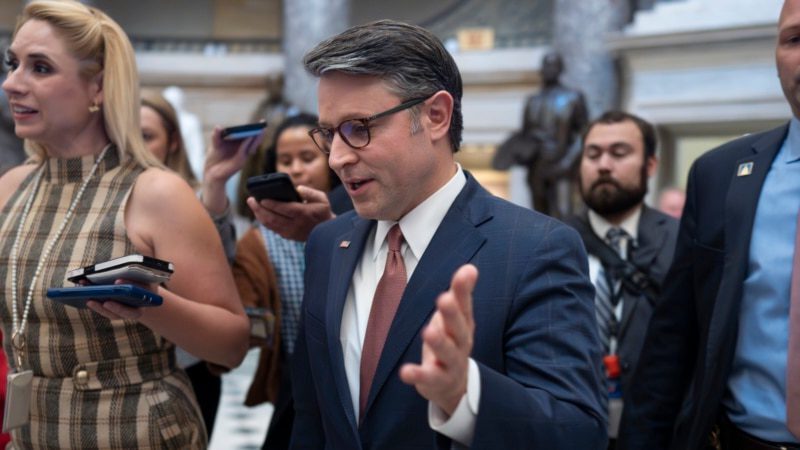Washington, D.C. – Another U.S. government shutdown was averted—at least for now. This Wednesday, Congress pushed through a temporary funding bill that extends federal agency funding until December 20. But, while the immediate crisis is off the table, the real challenges loom just past the November 5th elections.
If you’ve been following U.S. budget news for a while, you’re probably no stranger to these last-minute, temporary fixes. This year’s stopgap measure came down to the wire once again, and it passed with wide bipartisan support in the Senate (78-18) and the House (341-82). Still, beneath the calm surface, deeper spending disputes between Democrats and Republicans have only been delayed, not solved.
So, What Just Happened?
In short, Congress kicked the proverbial can down the road. The newly approved bill maintains government funding at current levels until December, buying lawmakers time to hash out a long-term solution. This time, however, $231 million was tacked on to bolster Secret Service protection, a direct response to two recent attempts on Republican candidate Donald Trump’s life.
From an SEO perspective, it’s worth asking: Why is this important?
Because budget battles have broader implications that stretch beyond just D.C. politics—they ripple through markets, affect federal programs, and influence public perception. And if you’re a business owner or financial analyst, staying informed on these developments can give you an edge in planning for economic fluctuations.
But let’s not lose focus. While the immediate crisis was averted, this “pause” only delays a potentially bigger showdown in December—when real, long-term budget decisions need to be made.
Why the Rush for a Temporary Fix?
Imagine this scenario: You’re running a business and your entire workforce depends on receiving steady funding every month. Now, imagine if that funding was set to expire within days and no one had a clear plan to replace it. That’s essentially the pressure federal agencies were facing without this new bill.
Speaker of the House, Republican Mike Johnson, was quick to point out that the bill does “only what’s absolutely necessary.” His emphasis on keeping spending in check resonated with many fiscally conservative members of his party. However, not all Republicans were pleased. Some voted against the bill, arguing it merely postpones hard decisions. In fact, all 82 “no” votes in the House and 18 in the Senate came from Republican members who, like Representative Chip Roy, view these short-term fixes as part of a “vicious cycle.”
What’s the underlying issue here?
It’s all about spending priorities and how to control the growing federal deficit without shutting down the government. Johnson, recognizing this tension, made it clear that closing down federal operations wasn’t an option: “It would be political negligence to close the government.”
Breaking Down the Numbers: What the Bill Includes
Let’s step back and look at the key financial elements in this measure:
- General Agency Funding: The bill continues to fund federal agencies at their current levels, ensuring that everything from national parks to Social Security services keeps running smoothly through December 20, 2024.
- Secret Service Budget Boost: An additional $231 million was allocated to the Secret Service, a reaction to recent security threats targeting Donald Trump, signaling the heightened political climate leading up to the November elections.
- Presidential Transition Fund: Given that we’re nearing another election, funds were also added to prepare for a potential presidential transition, a routine but essential measure for ensuring a smooth transfer of power if necessary.
Incorporating these numbers into your SEO strategy might seem tricky, but think of it this way: Each of these financial allocations provides potential insights into public policy priorities. Tracking these can help businesses, particularly in sectors impacted by government contracts, to better plan their fiscal strategies.
What This Means for the Future: The Bigger Battle Ahead
As reassuring as this temporary fix is, the bigger battle comes in December. After the November 5 elections, lawmakers will return to face the same unresolved issues.
What’s at stake? Everything from healthcare funding to defense budgets will be on the table. Plus, if there’s no deal by the new deadline, the prospect of a full government shutdown will be back.
For political watchers, this means keeping an eye on what shifts after the election. Will the balance of power shift enough to break the stalemate? Or will we be back here in three months, discussing another stopgap bill?
Why You Should Care (Even If You’re Not in Politics)
You might be asking, “How does this affect me?” Here’s why this story matters beyond Washington:
If you’re running a business or investing, the federal budget impacts everything from interest rates to public services. A government shutdown could have slowed down everything from issuing federal contracts to processing loans and public assistance payments. And for those of you tracking market volatility, knowing how these budget issues play out can give you the insight to anticipate potential shifts in the economy.
But here’s the kicker—this is not just about this month or this year. The broader conversation around federal spending is one that touches all aspects of economic stability. As we move closer to December, keeping a close eye on how this all unfolds could help you better forecast the fiscal landscape ahead.
Wrapping It Up: What to Watch For Next
As we move into November, expect the political climate to heat up. After all, elections have a way of clarifying priorities. What can you do between now and December 20? Keep track of how budget discussions evolve post-election—those debates will likely set the tone for long-term fiscal policy decisions that may impact everything from your tax rates to federal programs you rely on.
For now, rest easy knowing that the government will remain open for the time being. But don’t be surprised if we’re having this same conversation again in a few months—only this time, the stakes will be higher.


